Customer Services
Copyright © 2025 Desertcart Holdings Limited


The Grapes of Wrath [Steinbeck, John, DeMott, Robert] on desertcart.com. *FREE* shipping on qualifying offers. The Grapes of Wrath Review: great American classic - No words to adequately describe the love of family and desperation for survival of theJoads described in this book. Just one of many thousands of dust bowl family victims. Amazing is the tragic inability of any government agency to keep Americans from starvation or provide any help at all. Sad period of American history. Steinbeck’s writing allows readers to actually visualize the reality of the suffering. Absolutely wonderful work. Review: No kicks on Route 66 - In this novel about Oklahoma farmers forced by the Dust Bowl and the Great Depression to seek a new life for themselves as migrant laborers in California, John Steinbeck may well have written the Great American Novel. "The Grapes of Wrath" is the story of the Joad family, but it's also the story of a people on the move, a nation in crisis, and humanity in its extremes of greed and goodness. The first quarter of the novel tells of young Tom Joad's homecoming after several years in prison for killing a man in a drunken brawl. Contact with his family has been minimal over the years, and he looks forward to seeing his parents, grandparents, and siblings again - but the house is empty, obviously abandoned, like so many others in this land where a combination of drought and poor agricultural techniques has resulted in failure and foreclosure on countless family farms. Fortunately, Tom learns from a neighbor that his family has gone over to his uncle's place, and he arrives there just in time to join them on their way to California, where they've been told there's plenty of work in the state's lush Central Valley. The second quarter of the novel is the story of the Joads' arduous journey west on Route 66, a trip distinguished by breakdowns, death, and intimations by those who have been there that California may be something less than the paradise they've been led to imagine. The final half of the novel follows the Joads after they arrive in California, only to discover that it's possible to starve even in a land of plenty as too many would-be workers are forced to compete for available jobs by accepting wages barely sufficient to buy enough food from one day to the next. The novel ends with one of the most stunning and affecting scenes you'll ever read, and although nothing at all is resolved, the story feels complete. The structure of the novel underscores Steinbeck's creation of the Joads as the human face of a social crisis. Long chapters that advance the plot alternate with short chapters in which the Joads are never mentioned, in which Steinbeck's richly poetic prose establish the physical and moral setting of his work: the conditions leading to the Dust Bowl, the loss of a way of life, the journey to a new beginning, and the disillusionment and growing anger of the migrants - all on a massive scale. These short, poignant chapters are as beautiful, captivating, and necessary as the story chapters, as they provide context and grant a kind of holy universality to the Joads' experiences. Steinbeck's writing is raw, earthy, and viscerally powerful. This is realism at its finest: full of small, telling details, and at times casually vulgar, not for shock value but because life itself is casually vulgar. I was about 13 the first time I read this novel, and the blunt honesty of the writing was a bit much for my somewhat sheltered mind; I remember feeling uncomfortable when an old man reached into his pants and "contentedly scratched under the testicles," as that wasn't a word I was used to seeing in print, at least outside of biology texts. I loved the background chapters but found the Joad chapters distasteful for the first hundred pages or so, when I finally allowed the vivid immediacy of Steinbeck's style to make the characters real for me. As an adult, I have no such difficulties and am able to appreciate the masterful style and rich characterizations immediately. This is a mature novel, about people too crassly human to elicit our pity, but too warmly human not to elicit our compassion. I must admit that as a native Californian, I feel a special connection with this novel. For most of my life I lived just a few blocks away from the old Route 66 (although farther west than the point where the Joads left it to go north). Several of my husband's children live in the Central Valley, around places Steinbeck mentions by name. However, Steinbeck's skill is such that even if you've never been there, you'll close this novel feeling as though you had. This is a novel every American should read - indeed, everyone interested in what it means to be human in trying times. These days more than ever we need this book, we need this reminder of the values of proud self-sufficiency and fierce decency, for it is when we stop pulling, and pulling together, that we lose our way.

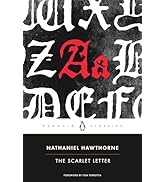
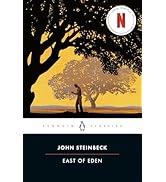


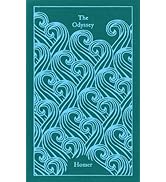
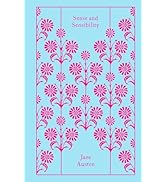
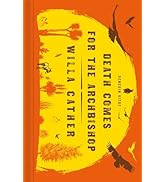

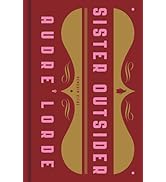

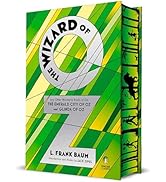
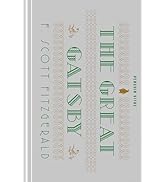
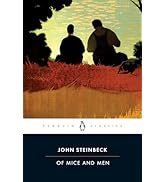


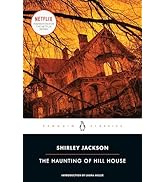
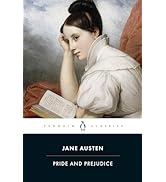

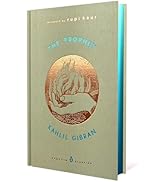
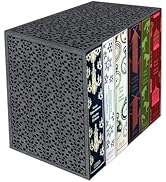
| Best Sellers Rank | #1,043 in Books ( See Top 100 in Books ) #5 in Censorship & Politics #68 in Classic Literature & Fiction #88 in Literary Fiction (Books) |
| Customer Reviews | 4.6 4.6 out of 5 stars (23,960) |
| Dimensions | 5.01 x 0.86 x 7.62 inches |
| Edition | Annotated |
| ISBN-10 | 0143039431 |
| ISBN-13 | 978-0143039433 |
| Item Weight | 12 ounces |
| Language | English |
| Print length | 528 pages |
| Publication date | March 28, 2006 |
| Publisher | Penguin Classics |
H**5
great American classic
No words to adequately describe the love of family and desperation for survival of theJoads described in this book. Just one of many thousands of dust bowl family victims. Amazing is the tragic inability of any government agency to keep Americans from starvation or provide any help at all. Sad period of American history. Steinbeck’s writing allows readers to actually visualize the reality of the suffering. Absolutely wonderful work.
R**S
No kicks on Route 66
In this novel about Oklahoma farmers forced by the Dust Bowl and the Great Depression to seek a new life for themselves as migrant laborers in California, John Steinbeck may well have written the Great American Novel. "The Grapes of Wrath" is the story of the Joad family, but it's also the story of a people on the move, a nation in crisis, and humanity in its extremes of greed and goodness. The first quarter of the novel tells of young Tom Joad's homecoming after several years in prison for killing a man in a drunken brawl. Contact with his family has been minimal over the years, and he looks forward to seeing his parents, grandparents, and siblings again - but the house is empty, obviously abandoned, like so many others in this land where a combination of drought and poor agricultural techniques has resulted in failure and foreclosure on countless family farms. Fortunately, Tom learns from a neighbor that his family has gone over to his uncle's place, and he arrives there just in time to join them on their way to California, where they've been told there's plenty of work in the state's lush Central Valley. The second quarter of the novel is the story of the Joads' arduous journey west on Route 66, a trip distinguished by breakdowns, death, and intimations by those who have been there that California may be something less than the paradise they've been led to imagine. The final half of the novel follows the Joads after they arrive in California, only to discover that it's possible to starve even in a land of plenty as too many would-be workers are forced to compete for available jobs by accepting wages barely sufficient to buy enough food from one day to the next. The novel ends with one of the most stunning and affecting scenes you'll ever read, and although nothing at all is resolved, the story feels complete. The structure of the novel underscores Steinbeck's creation of the Joads as the human face of a social crisis. Long chapters that advance the plot alternate with short chapters in which the Joads are never mentioned, in which Steinbeck's richly poetic prose establish the physical and moral setting of his work: the conditions leading to the Dust Bowl, the loss of a way of life, the journey to a new beginning, and the disillusionment and growing anger of the migrants - all on a massive scale. These short, poignant chapters are as beautiful, captivating, and necessary as the story chapters, as they provide context and grant a kind of holy universality to the Joads' experiences. Steinbeck's writing is raw, earthy, and viscerally powerful. This is realism at its finest: full of small, telling details, and at times casually vulgar, not for shock value but because life itself is casually vulgar. I was about 13 the first time I read this novel, and the blunt honesty of the writing was a bit much for my somewhat sheltered mind; I remember feeling uncomfortable when an old man reached into his pants and "contentedly scratched under the testicles," as that wasn't a word I was used to seeing in print, at least outside of biology texts. I loved the background chapters but found the Joad chapters distasteful for the first hundred pages or so, when I finally allowed the vivid immediacy of Steinbeck's style to make the characters real for me. As an adult, I have no such difficulties and am able to appreciate the masterful style and rich characterizations immediately. This is a mature novel, about people too crassly human to elicit our pity, but too warmly human not to elicit our compassion. I must admit that as a native Californian, I feel a special connection with this novel. For most of my life I lived just a few blocks away from the old Route 66 (although farther west than the point where the Joads left it to go north). Several of my husband's children live in the Central Valley, around places Steinbeck mentions by name. However, Steinbeck's skill is such that even if you've never been there, you'll close this novel feeling as though you had. This is a novel every American should read - indeed, everyone interested in what it means to be human in trying times. These days more than ever we need this book, we need this reminder of the values of proud self-sufficiency and fierce decency, for it is when we stop pulling, and pulling together, that we lose our way.
J**Y
In this specific video clip Louis makes a farcical argument that all men love women's breasts
It quite paradoxical and embarrassing how I became known about Grapes of Wrath. I was introduced to Grapes of Wrath from a youtube clip of Louis C.K. who is stand-up comedian. In this specific video clip Louis makes a farcical argument that all men love women's breasts. Regarding the book, he says "I don't want to ruin the book for you, but you should have read the book by now. If you read the book, Grapes of Wrath, that's how it ends. With an old dying man sucking milk out of pretty young girl's boobs. And then the book is over. And you are like Geez... What happened at the end there? There is no other book in that genre -Dense historic classic that ends with weird ‘porny’ paragraph. We [men] love breasts" Then I bethought myself of reasons to read this book. First, as an immigrant American, I have duty to know and appreciate History of the Great Depression. Second, I already knew the book will end with an old dying man sucking milk out of a pretty young girl. I have to disclose that the latter was a stronger motivation for me to purchase this very book. Third, I desired to know what let up to such an ending. Fourth, is the curiosity in that how such a book of pornographic content has become an American Classic quintessential to that epoch. Whichever the motivation was – either more perverted content or curiosity – was I glad that it made me purchase the book and commit myself to read this thick book cover to cover. The story is about a family. It is people's story with whom you will smile, laugh, frown, and cry together. Each character is very special in their own ways. I felt the deepest connections with each one than any other books I had read thusly, even though I had had nothing in common with these characters. I grew up in a different country; I lived all my life in urban surroundings; I knew nothing about farming; I had never experienced hunger, poverty, or famine of any sort; I had never encountered any inhuman treatment from others. I drove cross country twice from east to west. Even then my experience was very different than that of the Joad's family. I found myself fraught with anger for the family throughout their journey to West and then their journey to happiness and stabilization (living like a normal family). The book is very straight forward. It shows from the beginning that the family won't ever reach to what they are look for, all of which are jobs, house, and food. Nothing goes right for them. The family was told on multiple times that bright expectations California are false -- an illusion created by greedy farm owners. The family presses on with hope that everything would work out. They did not lose hope when the grandpa, grandma died in a horrible way; Connie ran away; The preacher was arrested and died; multiple occasions that the truck broke down; they ran out of food to eat; they were treated inhumanly; they were underpaid; Tom was wanted again for murder; Rose of Sharon had a stillborn baby. The book shows sad political and societal background and injustice towards migrant farmers during the great depression through the Joad's family. Is the book just valuable because it contains the historic accounts of reality during the Great Depression? I do not love this book because it has the historic value to it, of which, however, I enjoyed. Nonetheless, I love this book because this book is all about hope. Through the story of the Joad family, I learned that I could hope no matter what situation in which I find myself, and I can always hope more. The ending of the book wherein the dying old man feeds on Rose of Sharon's breastmilk with her smiling is not "porny". Rather is it a “hopy”. The hope the family has been dragging on goes on and spreads onward. The book is 464 pages. Has the book been thicker and the story went on further, the family would have still had that hope which helped them to continue on. Maybe that's the same hope as the hope that the poor were able to survive with during the Great Depression in real life, and the author just wanted to capture that in his book.
R**R
Basic Amazon print, the pixels of the cover art are visible because it is just copy pasted......
M**O
A experiência de leitura nessa edição é demais, começando pela introdução maravilhosa do Robert Demmot, um estudioso da obra de Steinbeck, que também é responsável pelas notas. O prefácio traz a contextualização e os desdobramentos do impacto da obra na história norte-americana, além de uma análise do autor, de suas obras e muitas dicas sobre filmes, documentários, músicas (há uma canção do Bon Dylan para um dos personagens) e até de uma paródia da revista Mad. Robert Demmot também é responsável pelas notas de rodapé, que são bem importantes nessa obra, pois há bastante gíria e o autor utiliza a forma coloquial da fala da região em sua escrita.
M**N
John Steinbeck’s The Grapes of Wrath. No wonder The Grapes of Wrath won the Pulitzer…. Classic is a CLASSIC. Very emotional response to the great depression and stock market loss in America and using that as the backdrop, the novel projects the inhumane and dehumanizing nature of human beings and equally projecting and championing the case for the humane nature of humankind. The Narration part is phenomenal. Alternate chapters take different narrators- the workers, farmers, migrants, shop keepers.... The Novels talks about the Oklahoma City migrant workers- focusing on the Joads. The story revolves around the Joad family. Tom Joads is recently released from prison for killing a man while being drunk. As he comes back to his father’s cotton farm, he meets Casy, an ex-preacher, and they both reach the destination only to find that the land is desolated. Understands from a local man Muley that the lands are being taken by banks and the Joads are in Uncle John’s house and are, like the other folks, preparing themselves to move to California aiming job for survival. After days of preparation, they finally start the journey. Grandpa, grandma, Pa, Ma, Tom Joads, his brothers Al Joads and Noel Joads, his pregnant sister Rose of Sharon and her husband Connie, along with Casy, Uncle John, kids Ruthie and Winfred, and one of their dogs, the Joads like the Israelites hoping to reach the land of milk and honey, are on wheels towards California. The road teaches the Joads lots of life lessons; they meet friendly poor migrants, the meet lots of calculative opportunist shop keepers, and guards who side with the wealthy few. The family lose their dog in an accident, and they also lose both grandma and grandpa before reaching California. Oh yes they do reach California, but not everyone in the family. Noel goes his way and so is Connie. The hope of the Joads to get jobs starts to shake from the foundation, as unemployed migrants are everywhere and they overcrowd California. The wages are low, still the Joads endure to live decently with the earned money. Ma Joads takes up the task of keeping the family together against all odds, even when shifting from one place to the other. Like the tortoise, the Joads move in all possible direction looking for job prospects, taking their home along at the back. Whether they win lot of money in the new-found land, or lose every single penny… Whether they gain friends or accumulate ememies… Whether they endure and stick as one family or split… Whether they accept the reality as fate or they fight and act different… Whether they are fettered by the past or stoic enough to face the present… - that’s for the readers to pry. But one thing I can assure- like his novella Of Mice and Men, the Novel The Grapes of Wrath wins the heart of readers. It has done in the past and present and so it will continue too for the future readers. COMPELLING READ. Thumps up for the 1963 Nobel winner- THE JOHN STEINBECK.
M**A
Riletto in lingua originale dopo che non ero riuscito a finirlo quasi 60 anni fa in versione tradotta. La storia di disperazione e speranza di questa famiglia che va a Ovest oggi è tragicamente attuale vedendo un intero continente che cerca un futuro a Nord. Si fa fatica a finirlo, la disperazione non finisce mai. Poi il colpo di genio, nelle ultime righe. Da leggere, come tutti i libri di Steinbeck, d'altra parte.
S**S
Perfecto para viajes en avion a camion
Trustpilot
5 days ago
2 days ago